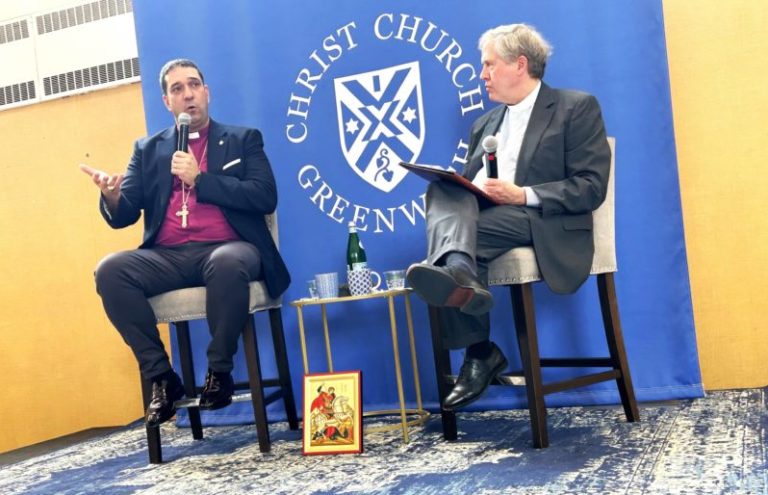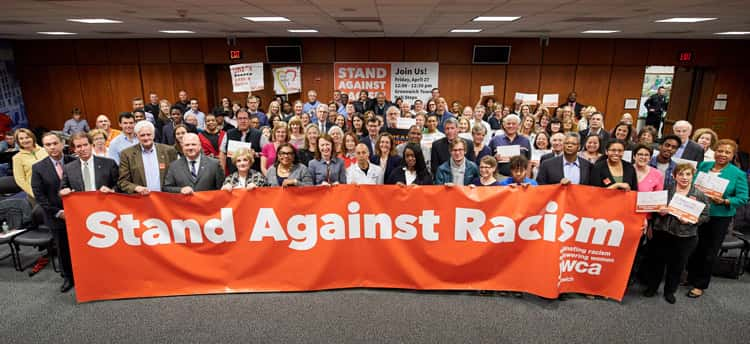By Clay Kaufman
In my career as an educator, the number one complaint I hear from students is that even when adults purport to listen to kids, adults still don’t tend to hear them. I vividly remember being at a neighbor’s Friday evening gathering once, when my children and theirs were all just starting school. At the party packed with neighbors, I first ran into 6-year-old Jamie, whom I knew pretty well, and said, “Hi Jamie!” She replied “I’m not answering a lot of questions about school!”, and with exasperation waved me away with her small hand. I quickly realized that every adult at the party already had probably greeted Jamie with “How’s school?” It was the kind of question that we, as adults, sometimes ask even when we are not necessarily interested in the answer. And kids know that.
I always tried to be particularly thoughtful when talking with 11th and 12th grade students I would encounter, resisting the urge to ask, “So, how’s the college search going?” Every adult asks them the same question, and it feels like a loaded question (which colleges should I mention so the adult thinks highly of me? How much does this person really want to know?) even if the teenager knows it’s probably just small talk.
So how can we talk to our kids, from the youngest through teenagers, in a more meaningful way?
We can start by asking questions when we really have time to listen and hear, and find ways to let kids know we care about their answer.
If you want to have a deeper conversation, talking while in the car often helps kids open up, because the adult isn’t staring right at them. For the same reason, sitting with your kids at night in the dark often makes it easier to get them to talk.
It can be helpful to think about ditching the generic questions (out with “how’s school?”!) for probing questions. Think about what kinds of questions you like to be asked when someone wants to show they care about your opinion.
Even at a very young age, kids have interesting opinions. While most kids will answer your generic question “How’s school”, I find they are pretty engaged when you ask them specific questions that dig beneath the surface, such as asking them about the qualities they like in their friends, or something hard they are learning how to do, or something they are really proud of. Those kinds of conversations help kids practice forming their thoughts purposefully.
Our initial response matters! Kids hesitate to share when they think they’re being judged. So I try my best not to respond immediately with answers or solutions, if I really want to hear what they have to say. As a dad, that was always a challenge for me with my own kids. Like most parents, I wanted my kids to share their troubles and fears with me. But if they know that when they share a problem, they’re going to get a full exposition of Dad’s twelve-point solution plan in response, they’re not going to want to share. I got some great guidance along the way: someone suggested I always ask my kids, “Is this something you just want to vent about, or would you like some advice?” My kids (and also my students) were good about telling me when they needed to vent. It wasn’t always easy for me to hold my tongue and just listen, but it led to more meaningful conversations.
I try to ask questions that allow kids to weigh pros and cons. Kids have opinions, and it is helpful when they can practice formulating their ideas and presenting them to adults. After a political issue caused quite a stir where my children grew up, the local high school students decided to announce a walk-out, with plans to take the Metro downtown where a rally was happening. My daughter came to me asking about whether I thought she should join the walkout. We talked about what made her interested in going, and what her concerns were. I tried hard to listen and ask follow-up questions, and ultimately she decided that if her closest friends were going and they could stick together, she’d want to go. At 10 am the next day, she texted me with the plan, and it turned out to be a well-received rally and a tremendous confidence-building opportunity for her, as well as a lesson in peaceful protest.
When I first started my career as a teacher, I was lucky to work closely with a woman who had founded a very different kind of private school that reflected her belief that students benefit from being well known and heard by the adults around them. After a few years as a teacher, I started helping her with admissions, and began sitting in on the interviews she conducted with 11-year-olds and 13-year-olds who were applying for 7th and 9th grade. The interviews were like nothing I had ever seen: the parents sat in, but they were just there to listen, and every question was directed to the student. She would ask them questions like, “What stresses you out the most?” and then would just let the students speak. It was remarkable how well you could get to know how a student thinks when you ask the right questions and listen to the answers. Ahead of the interview, parents would often ask why they were being invited to attend the interview if they weren’t going to be answering questions. But inevitably, after the interview, they would reach back out to say how fascinating it was to hear their child express opinions, and how much they learned about their child from the interview.
I have had many students over the years tell me that they know what kind of answers adults usually expect, and so they give them what they want to hear. Isn’t that a shame? I taught history for many years, and one year, while my students were reading “Romeo and Juliet” in English class, we studied the movie “Rebel Without a Cause” in history class, focusing on the experiences of teenagers in the 1950s. As we finished the unit, I asked them what frustrated them most about being teenagers. They mentioned “adults not actually listening” and “adults assuming that we don’t know anything,” among a host of other observations. We got the list of about 30 responses on the board, and I asked which of the observations also applied to the teenagers in “Romeo and Juliet,” and to the teenagers in the movie. They decided that almost all of them applied, concluding that nothing had really changed for teenagers in 500 years! If we are striving to help kids become thoughtful, reflective, productive adults, the investment in truly hearing what they have to say can make a big difference.
Clay Kaufman, a longtime educator and school leader, is founder and Head of School at The Cedar School, a high school for students with language-based learning differences, such as dyslexia, here in Greenwich.




